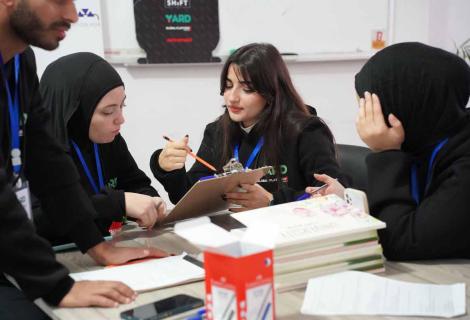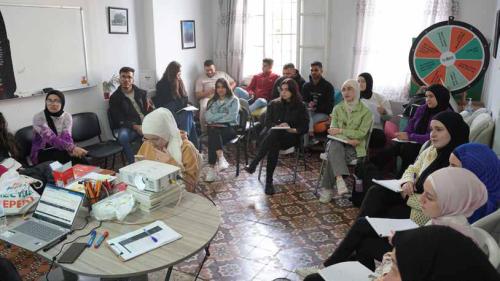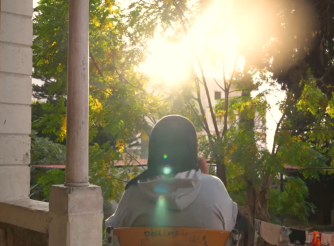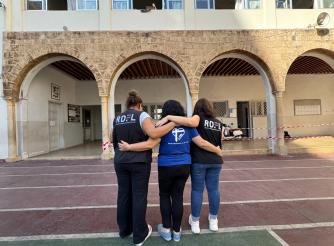The impact of displacement on social cohesion – and the bridges built by women and youth

A note to the reader: This article was written before the Lebanon conditional ceasefire, but details of ActionAid’s support remain relevant as the situation continues to evolve.
Lebanon and its people have faced – and continue to weather – multifaceted challenges, from war to political instability, economic crises to the recent influx of displaced populations.
Lebanon has been engaged in a low-intensity war with Israel since 8 October, 2023, but the pace of this war escalated dramatically in mid-September 2024. The war has resulted in the deaths of more than 4,000 people, including more than 316 children and 790 women, with losses estimated at $15 billion. Lebanon was already suffering from a stifling economic crisis before the war, as the country was reeling from hyperinflation, currency devaluation, and a banking crisis that wiped out many people's savings, making the economic situation even more fragile.
In addition to the human and economic losses, the war has caused the internal displacement of over 1 million people with rental prices in safe areas increasing fivefold, which has increased social tensions between the displaced and the host communities.
As a result, the social fabric of communities in cities like Tripoli has been put under immense strain.
In order to understand the extent of the impact of displacement on social cohesion, and to address it, ActionAid Arab Region’s local partner, SHIFT Social Innovation Hub, conducted an extensive research study.
The findings of their field research, which emphasise the critical role youth and women play in fostering peace and unity, are outlined in a detailed report. Based on their data-driven insights and the lived experiences of affected individuals, SHIFT presents actionable recommendations aimed at enhancing integration, supporting marginalised groups, and building sustainable pathways to coexistence.
Key findings
The impact of displacement on social cohesion
Displacement led to an increase in local tensions between host and displaced communities, but at the same time opened up opportunities for cooperation and mutual understanding through community initiatives.
The role of youth
Young people in Tripoli have demonstrated remarkable leadership potential in social cohesion initiatives, contributing to reducing tensions and spreading a culture of peace and coexistence through their active participation in humanitarian and social initiatives.
Empowering women
Women, especially young women, have played a central role in supporting displaced people and strengthening social ties by organising and managing events and activities aimed at improving relations between different communities.

Recommendations
For policies:
- Develop educational and training programmes targeting youth and women to enhance their skills in mediation, negotiation, and peacebuilding.
- Establish permanent dialogue platforms that include youth and women representatives to discuss and formulate public policies related to displacement and social cohesion.
For local organisations:
- Fund and support youth initiatives that enhance social cohesion and provide innovative solutions to societal challenges.
- Provide training programs to empower women in the areas of leadership and
community participation.
For international organisations and donors:
- Invest in developing the infrastructure of communities that host displaced people, including education and health services.
- Support economic empowerment projects for youth and women in displacement affected areas to improve their ability to contribute to their local economy.
By leveraging grassroots initiatives and inclusive interventions, the recommendations laid out in this report seek to bridge divides, reduce tensions, and promote collaboration between host communities and displaced populations.


